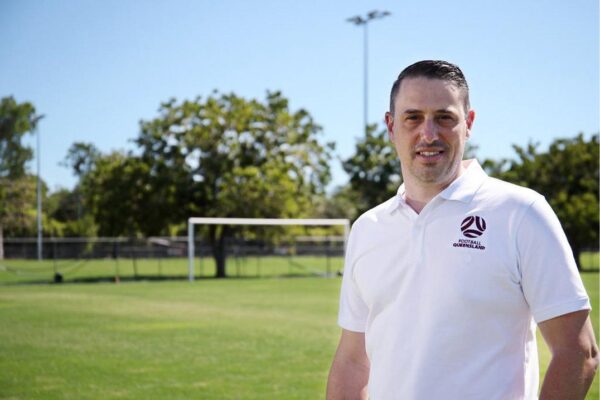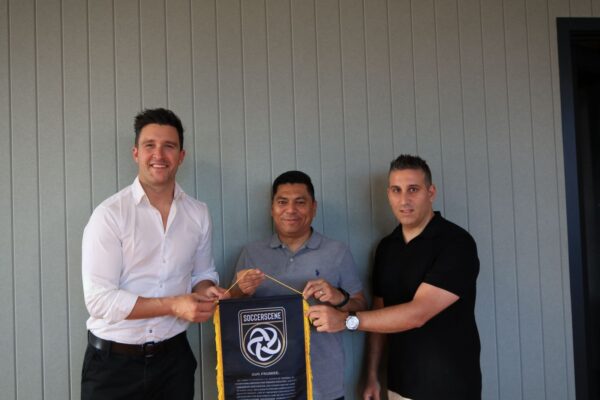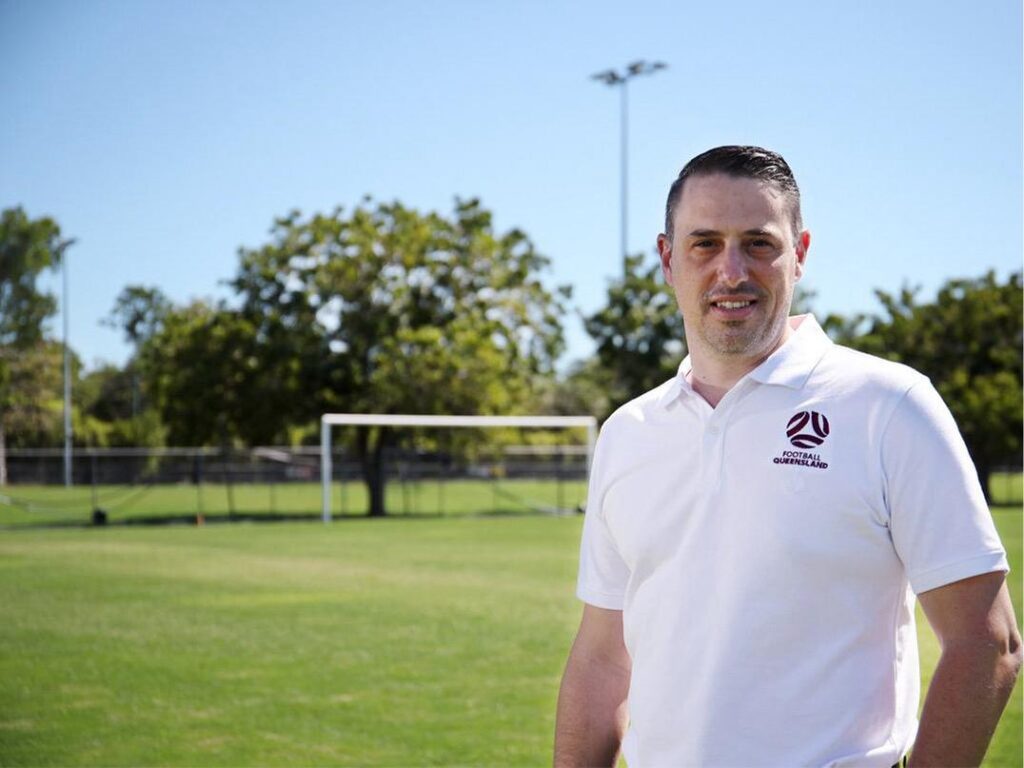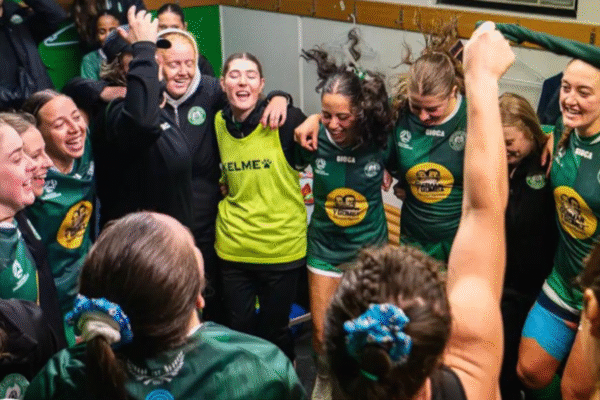
Football Coaches Australia is passionate about improving high performance environments for women football coaches in Australia.
In a collaboration between Football Coaches Australia (FCA), Global Institute of Sport (GIS) and XVenture, FCA will host a Women’s Football Summit at the Melbourne Cricket Ground on Tuesday July 25, 2023. The Summit is being held exclusively during the FIFA Women’s World Cup 2023, which begins on July 20.
Hosted by BBC Sport Presenter Mark Clemmit, the Summit will focus on the Australian women’s coaching landscape, discussing the evolution of coaches and the cultural changes required for the women’s game, based on past and current experiences.
Accredited coaches who attend the Summit will receive 30 CPD Points as determined by Football Australia Coach Education
For full details and to register for the event, please visit the following link: https://www.eventbrite.com.au/e/global-institute-of-sport-football-coaches-aus-womens-football-summit-2023-tickets-618400250797
The Summit will feature presenters who are leading women’s football coaches and/or experts in their areas of coach and player professional development, wellbeing, advocacy and equity.
Belinda Wilson:
Belinda is the Senior Technical Development Manager at FIFA working with the Women’s Football Division based in Zurich She is responsible for developing and executing football development programs linked to the objectives of the FIFA Women’s Football Strategy.

Michelle De Highden:
Michelle is a member of the AIS High Performance Coach Development Team and is leading a national project to shift the dial on the underrepresentation and experiences of women in high performance coaching. Michelle is an experienced high-performance coach and coach developer, passionate about facilitating coach development at the high-performance level.
Aish Ravi:
Aish is a FCA Executive Committee member the Women’s Coaching Association Co-Founder/ Director , a Football Australia Women’s Council member; Secondary School and Tertiary Educator, Head Coach of Cobras FC. Aish has recently completed her PhD paper ‘Exploring the lived experience of women coaches in Australia’, which is the topic she will present at the Summit
Dr Deidre Anderson:
Dr Deidre Anderson AM is an outstanding social scientist and leader, who has worked with a variety of organisations and elite international athletes. She has held executive positions both at international and national level within elite sport and the private sector.

Mike Conway:
Mike is the founder/ CEO of XVenture and was the Emotional Agility and Mental Coach, for the Socceroos at the FIFA World Cup in Qatar having previously worked with Socceroos coach Graham Arnold as part of the team behind Sydney FC’s historic A-League Men’s success, He is a TV Director, writer, business leader, clinician and mental coach for organisations, teams and elite sports stars, senior executives and entertainers.
Glenn Warry:
Glenn is the CEO of Football Coaches Australia and has worked in professional sport since 1983 in all football codes in Club management and national player/coach professional development roles. FCA’s key pillars are advocacy, professional development, wellbeing and equity. Glenn is leading discussions with Football Australia and Australian Professional Leagues regarding benchmark employment conditions for coaches.
Mark Torcasio and Helen Winterburn – Western United Football Club Coaches
A-League Women’s Coach of the Year in Season 2022-23, Mark has been passionate about women’s football for many years and has only ever worked in the women’s game. He led Western United FC to the A-League Women’s Grand Final in their inaugural 2023/24 season. Western United welcomed Helen to the Club as the inaugural Liberty A-League Women Assistant Coach. After beginning coaching in the United Kingdom at the age of 16, Helen went on to earn UEFA B Licence and take on a four-year scholarship at Limestone University in South Carolina, United States.
The FCA/GIS expert football panel: Let’s Talk Football – FIFA Women’s World Cup
The expert football panel will discuss all the talking points of the FIFA Women’s World Cup.
Members of the panel are:
- Gary Cole (facilitator): Host of “The Football Coaching Life” podcast and former Socceroo.
- Heather Garriock: Optus Sport Football Expert & 130-capped Matilda Midfielder; FA Board member; former A-Leagues coach – Canberra United FC; CEO Taekwondo Australia.
- Catherine Cannuli: Optus Sport; former Matilda; Technical Director Southern Districts Soccer Football Association; former Western Sydney Wanderers FC A-League Women’s Head coach.
- Sarah West: FCA Vice President; former Canberra United FC A-League Assistant Coach.
- Tom Sermanni: FCA Ambassador; Canadian National Team Assistant Coach; former Matildas, USA and New Zealand Head Coach.
Glenn Warry, Football Coaches Australia CEO:
“Football Coaches Australia seeks governance, professional standards, policies, regulations and professional development to appropriately support coaches within the women’s football coaching pathway and full time sustainable coaching roles at the professional level.
The A-League Women’s 2023-24 season will be a 20-round season extending to the full, 22 rounds (132 total matches) in 2024-25, bringing the league into line with global benchmarks. Whilst the structure was approved by the players through the Professional Footballers Australia, it is important that FIFA rules and regulation benchmarks, regarding the employment of coaches, are also adopted.
From an equity point of view, as we are about to kick off the FIFA Women’s World Cup in Australia, we only have two female head coaches appointed for the A-League Women’s 2023-24 and only three women who hold a full time professional coaching role in the country.
We welcome coaches and leaders to join our outstanding speakers who will share their insights and drive interactive discussion in their areas of expertise, during the full-day professional development and networking event at the greatest sporting stadium in the world.”
Sharona Friedman, Global Institute of Sport President:
“We’re delighted to be able to host the Women’s Coaching Summit alongside our partners Football Coaches Australia during our annual student conference at the MCG.
This Summit is exactly what we aim to do at Global Institute of Sport to ensure our students have opportunities to learn from and network with the best in the game. It promises to be a fantastic opportunity not only for our sports degree students from across the globe but also for the Australian football industry to learn from those at the forefront of the drive for gender equity.
It is imperative that we work together as an industry and leverage the once in a lifetime opportunity of hosting the FIFA Women’s World Cup to create an environment that helps to provide better and increased opportunities for female football coaches.”



















